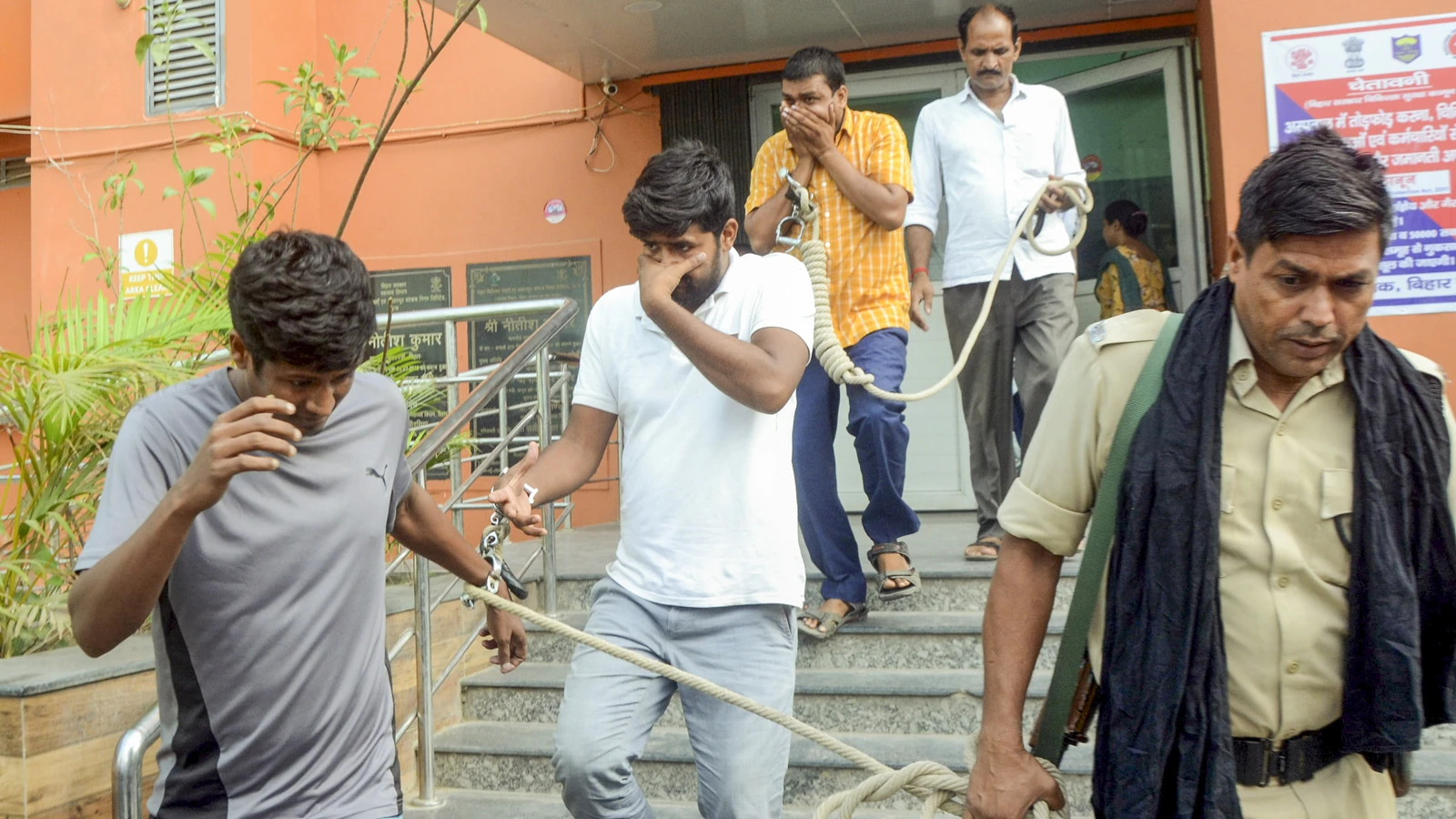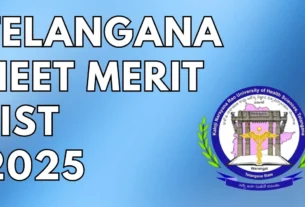NEET-UG Irregularities in Bihar : The National Eligibility cum Entrance Test (NEET-UG) serves as a crucial gateway for aspiring medical students in India, facilitating admissions to undergraduate medical programs across various institutions. Conducted by the National Testing Agency (NTA), this standardized test assesses the knowledge and aptitude of candidates seeking entry into the competitive field of medicine. Given the exam’s significance, integrity in its conduct is paramount to maintaining standards in medical education and healthcare delivery.
Recently, Bihar has come under scrutiny due to reported irregularities associated with the NEET-UG examination process. These irregularities have raised serious concerns regarding the fairness and transparency of the selection process, which is vital for ensuring that only qualified candidates gain admission to medical colleges. Such discrepancies not only undermine the credibility of the examination but also pose a significant threat to the integrity of the broader educational system in the country.
The Central Bureau of Investigation (CBI) has initiated an inquiry into these irregularities, with eight individuals booked in connection to the case. This action underscores the gravity of the situation and reflects the overarching need for vigilance in educational assessments. Key players involved in this investigation include examination officials, candidates, and others suspected of manipulating the exam process for personal gain. The implications of this investigation extend beyond Bihar; they signify a potential nationwide concern regarding examination malpractices.
In an era where educational equity and fairness are fundamental principles, the ongoing investigation into NEET-UG irregularities in Bihar highlights pressing issues within the examination framework. It serves as a pivotal moment for stakeholders to reassess existing protocols and implement measures that safeguard the integrity of medical admissions across India.
Details of the CBI’s Investigation : NEET-UG Irregularities in Bihar
The Central Bureau of Investigation (CBI) has initiated a thorough investigation into recent irregularities associated with the NEET-UG examinations in Bihar. This investigation comes on the heels of allegations suggesting manipulation of examination processes, which have raised significant concerns regarding the integrity of the admissions for undergraduate medical courses. A total of eight individuals have been formally charged as part of this investigation.
The evidence that triggered this inquiry encompasses multiple facets, including whistleblower testimonials and corroborating documentation hinting at possible collusion among certain educational institutions, candidates, and examination officials. Initial findings suggest a pattern of organized misconduct that aimed to facilitate unfair advantages for select candidates. Reports indicate that the perpetrators allegedly deployed fraudulent means, such as manipulating results and exploiting loopholes within the examination system, to ensure a favorable outcome.
In pursuing this investigation, the CBI has utilized a range of methodologies, including forensic analysis of examination records, electronic communication monitoring, and interviews with key stakeholders involved in the NEET-UG process. The agency has not only examined recent examination cycles but also delved into past instances of suspicious activities, establishing a timeline that illustrates a possible historical trend in malpractice.
The investigative process represents a proactive effort by the CBI to uphold educational standards and accountability within the medical admissions framework. The timeline leading to the fresh case reveals an escalation of earlier investigations into similar malpractice allegations, underscoring the urgency and necessity for such thorough scrutiny in light of persistent irregularities. As this investigation unfolds, further developments are anticipated, potentially leading to substantial repercussions for those implicated in the flawed practices related to NEET-UG admissions in Bihar.
Individuals Involved and Their Alleged Crimes
The investigation into the NEET-UG irregularities in Bihar has led the Central Bureau of Investigation (CBI) to register a case against eight individuals who are believed to be intricately connected to this malpractice. Each of these individuals is accused of participating in various capacities that collectively compromise the integrity of the NEET-UG examination, a crucial gateway for aspiring medical students in India.
First among those implicated is Mr. Rajesh Kumar, a coaching institute owner, accused of facilitating fraudulent activities by providing leaked examination papers to select candidates. His actions allegedly undermined the merit-based assessment essential for medical education. Secondly, Ms. Anjali Singh, a teacher at the same coaching centre, is alleged to have aided in the distribution of these papers, enabling students’ unethical advantage during the examination.
Another individual, Mr. Aakash Sharma, has been identified as a middleman who orchestrated the logistics of this scheme, including connecting candidates with sources of leakage. He reportedly charged hefty fees for his services in securing easy pass routes for many students. Furthermore, Ms. Neeta Verma, who worked as an invigilator during the NEET-UG exams, is under scrutiny for allegedly allowing candidates to cheat during the examination through the use of electronic devices.
The allegations extend to several candidates who are named as beneficiaries of this corrupt system. Among them, Mr. Vikram Joshi and Ms. Priya Patel allegedly engaged in purchasing answer keys from the coaching institute. Their involvement raises significant concerns regarding the ethical implications for future admissions in the medical field. The additional individuals booked include Mr. Sumit Ranjan and Mr. Ritesh Kumar, each facing serious charges that could impact their academic and professional futures significantly while leaving lasting consequences on the credibility of the NEET-UG examination process.
Implications and Future Developments : NEET-UG Irregularities in Bihar
The recent case registered by the Central Bureau of Investigation (CBI) concerning the irregularities in the NEET-UG entrance examination in Bihar has considerable implications for the education system and future examinations in India. Such incidents can severely undermine public confidence in the integrity of entrance examinations, which are crucial for determining admission to medical colleges. As NEET-UG serves as a benchmark for millions of aspiring medical students, this situation calls into question the fairness and transparency of the admissions process.
In light of these developments, stakeholders must closely monitor how such irregularities might influence forthcoming examinations. The fallout from these allegations may lead to increased scrutiny of examination conducting bodies, as well as demands for enhanced measures to ensure a secure examination environment. Educational institutions may find themselves pressured to adopt stricter verification protocols during the admissions process to restore public trust.
Furthermore, the ongoing investigation may set a precedent for legal proceedings against the accused. Should the CBI pursue extensive legal actions, it could initiate a ripple effect, prompting similar investigations into other regions or examinations that have faced suspicions of malpractice. Legal experts suggest that the ramifications of this case will likely extend beyond immediate penal actions and may influence legislative reforms aimed at preventing future irregularities.
As experts predict, the necessity for legislative and regulatory reforms is more pronounced than ever. Policymakers may consider revising existing guidelines for entrance examinations, emphasizing rigorous monitoring and accountability mechanisms. Such reforms could encompass developing digital solutions for examination administration, ensuring the reliability of processes, and enhancing transparency. Overall, the current situation underscores an urgent need to not only address the immediate concerns but also foster a more resilient and trustworthy educational framework in India. In conclusion, the implications of the CBI’s investigation are far-reaching and could reshape the regulatory landscape for entrance examinations in the coming years.





